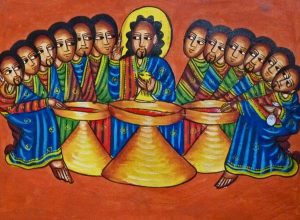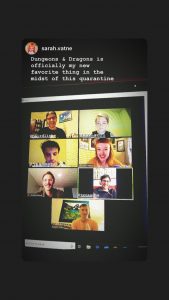The Word
When the hour came, Jesus and his apostles reclined at the table. 15 And he said to them, “I have eagerly desired to eat this Passover with you before I suffer. 16 For I tell you, I will not eat it again until it finds fulfillment in the kingdom of God.”
17 After taking the cup, he gave thanks and said, “Take this and divide it among you. 18 For I tell you I will not drink again from the fruit of the vine until the kingdom of God comes.”
19 And he took bread, gave thanks and broke it, and gave it to them, saying, “This is my body given for you; do this in remembrance of me.”
20 In the same way, after the supper he took the cup, saying, “This cup is the new covenant in my blood, which is poured out for you.21
Luke 22: 14-20
The Now
It is bizarre that “on the night in which he was betrayed” Jesus didn’t use his time to do something more productive. He didn’t rally the troops or lay out some grand strategy. He didn’t write a manifesto or plan some grand final demonstration. He sat down with his friends and shared a meal. What good is a meal when you know how bad things are about to get?

ethiopian painting of the last supper
We are on the brink of the most severe losses from the coronavirus outbreak in the US and social distancing, as necessary as it is, is taking its toll on people’s jobs and at least my mental health. Tropical Cyclone Harold is smashing through Fiji and Vanatu, highlighting the fact that extreme weather driven by climate change isn’t slowing down for us. Looking around, it’s hard to think that things aren’t about to get much worse. Maundy Thursday (the day in the church we remember this “Last Supper” gathering of Jesus and the disciples) feels especially real to me this year.
The Normal
The weird thing about Jesus’ last supper with his friends is how completely normal it is. They are together with their traveling companions, celebrating the same festival their people have celebrated for centuries, and sharing one of humanity’s most common meals: bread and wine. If it weren’t for what follows, this meal would be unremarkable to the point of being boring. And that’s the beauty of what Jesus does in this upper room. Jesus takes normalcy, the basic elements of community, history, food, and drink, and braids them together into something holy. He doesn’t leave us with some complicated and expensive ritual for the hard days to come—that wouldn’t do. Instead, he invites us to sit down with strangers and the people we love, share a simple meal together, and pause to remember that, even in those seemingly mundane moments, the Spirit of God is standing in our midst.

common gatherings in an uncommon time
#NoPlasticsforLent
I am terrified by the challenges we face. I worry that I am not enough to confront them on my own and that nothing short of a miracle will be able to save me. But Jesus tells us, “on the night in which he was betrayed,” that we have exactly what we need. Throughout the No Plastics for Lent campaign I’ve seen people sharing the small, holy ways that they pay attention to the world around them and I’ve gotten so much hope from the small and the holy. Thank you for walking this journey with me, and I look forward to breaking bread with you.
Discussion Questions
- What are some “normal” things that remind you of God?
- How has being in community helped you with your care for creation and one-another? How has that evolved in the present moment?
- What are some daily rhythms that you’ve learned through No Plastics for Lent that you want to make a normal part of your life?
- Where do you find comfort when the world is overwhelming?
 Baird Linke lives in the Twin Cities where he works with Calvary Lutheran Church as their director of faith formation and community engagement. He’s a nerd for ecology, theology, the outdoors, and running. He currently studies with Wartburg Theological Seminary.
Baird Linke lives in the Twin Cities where he works with Calvary Lutheran Church as their director of faith formation and community engagement. He’s a nerd for ecology, theology, the outdoors, and running. He currently studies with Wartburg Theological Seminary.
